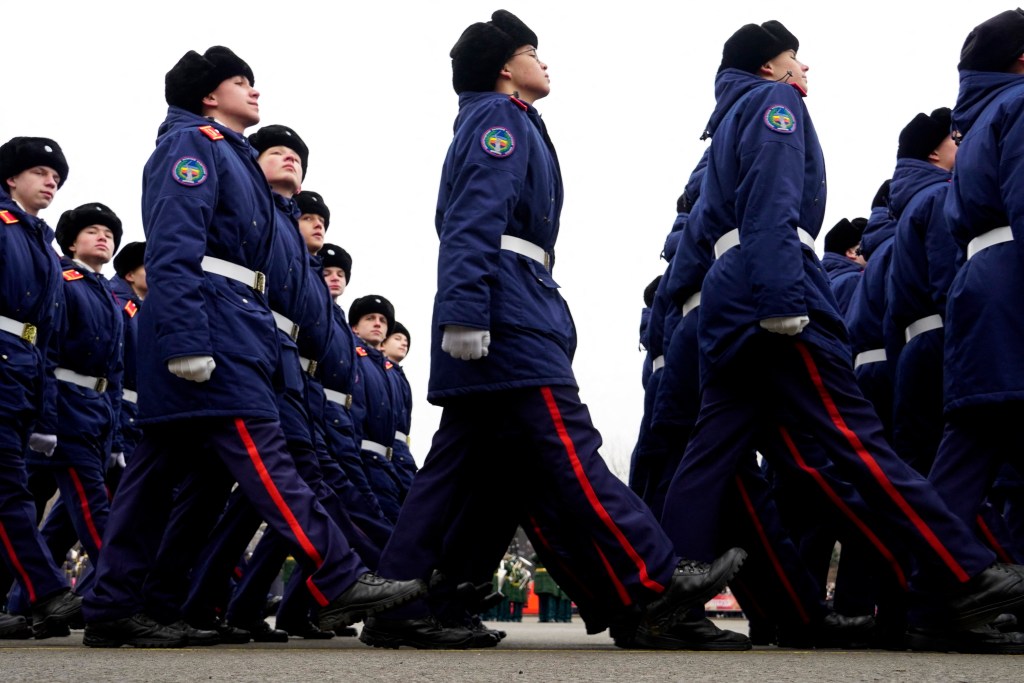Paris, February 3, 2023 – Russian authorities must stop their efforts to silence reporting on the country’s invasion of Ukraine and stop harassing foreign outlets covering the conflict, the Committee to Protect Journalists said Friday.
On January 24, the Leninsky District Court in the western city of Vladimir summoned the Kazakhstan-based independent news website Arbat.Media to a February 17 hearing for publishing allegedly inaccurate information about the war in Ukraine, according to multiple media reports, a report by Arbat.Media, and the outlet’s chief editor Syrym Itkulov, who spoke to CPJ via messaging app.
Itkulov called the summons “surreal” and added that it “goes without saying” that the outlet’s representatives would not travel to Russia to respond to the summons.
“After cracking down on the coverage of Russia’s war in Ukraine on its own territory, Russian authorities are now trying to censor reporting abroad as well,” said Gulnoza Said, CPJ’s Europe and Central Asia program coordinator, in New York. “Authorities must immediately drop any legal proceedings against the Kazakh outlet Arbat.Media, and stop trying to put foreign media under the same yoke as Russian outlets. Kazakh authorities, for their part, must send a clear signal that the country’s news outlets are in no way subject to Russian law.”
A court notice published on Arbat.Media’s website states that the Vladimir military prosecutor’s office requested the outlet be banned in Russia and accused Arbat.Media of publishing “false” information about Russian army casualties, Russian forces’ shelling of residential buildings, and the deaths of civilians.
The notice also alleges that an article about Russian forces retreating from the northeastern Ukrainian city of Kharkiv in September 2022 was “misleading,” and accused the outlet of “shaping a distorted perception of current events among the Russian Internet audience and creating dissenting sentiments.” Russian state media regulator Roskomnadzor requested Arbat.Media remove that article in November, but the outlet refused to comply.
In a public letter sent to the Kazakh Ministry of Information on Thursday, independent local free speech organization Adil Soz reminded authorities that “censorship is prohibited in Kazakhstan.”
Adil Soz head Karla Jamankulova told CPJ that she hoped the Kazakh government would take “a public firm stand” to “protect our information space from any attempts of other countries to dictate what our media should write about and how.”
Following Russia’s full-scale invasion of Ukraine in February 2022, Roskomnadzor said in a statement that all media “must only use information and data received from official Russian sources,” under the threat of being blocked online. Since then, authorities have requested at least 11 Kazakh media outlets to remove war-related content, according to data sent to CPJ by Adil Soz.
The independent media outlet Vlast and the news portal Informburo.kz refused such orders, while other outlets complied, according to reports.
“This is a violation of international jurisdiction,” Itkulov said. “How can a Russian district court summon a foreign media outlet to a trial?”
Roskomnadzor has blocked several Central Asia media outlets, including services affiliated with the U.S. Congress-funded broadcaster Radio Free Europe/Radio Liberty, the Kyrgyz independent news outlet Kloop, Kazakh information portal NUR.kz, and the Central Asian service of independent Russian news outlet Mediazona over their war coverage.
CPJ emailed the Leninsky District Court, Roskomnadzor, and the Kazakh Ministry of Information for comment, but did not immediately receive any replies.
[Editors’ note: This article has been updated to correct the year in the dateline at the start of the report.]
